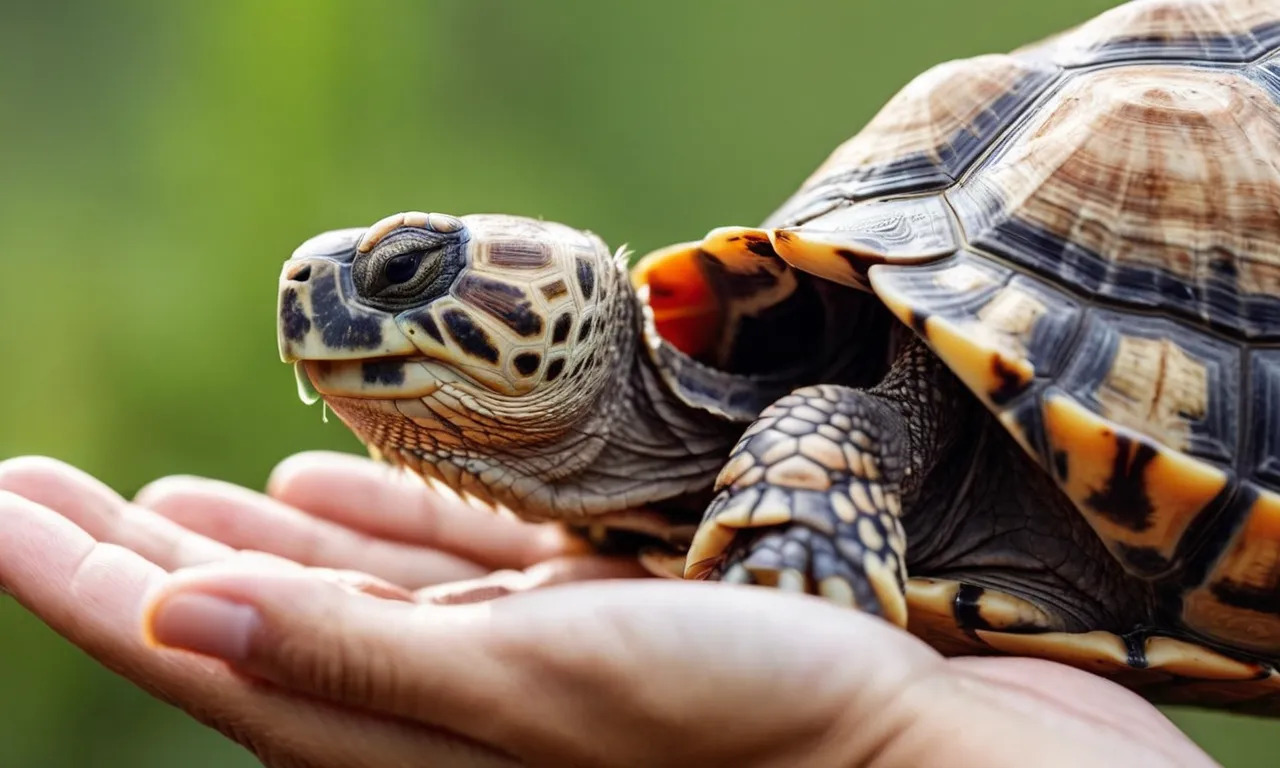Do Tortoises Love Their Owners?
-

- by Admin
- Oct 26, 2024

Tortoises are fascinating creatures that make great pets for the right owners. With long lifespans, gentle demeanors, and relatively simple care needs, they form bonds with their human caretakers over the years. But do they truly feel love and affection for their owners like dogs or cats might?
If you’re short on time, here’s a quick answer to your question: While tortoises likely don’t feel love or affection in the same complex way mammals do, research shows they do recognize their owners and can form positive associations with their presence, voice, touch and scent through conditioning over time.
Tortoises Have Basic Emotions and Form Bonds
Tortoises experience basic emotions like fear, pleasure, excitement and aggression
Reptiles may seem cold and emotionless, but research shows that tortoises actually experience a range of basic emotions like mammals and birds. Studies using behavioral tests found that tortoises demonstrate feelings of fear, pleasure, excitement and even aggression.
They recognize owners through sight, sound and scent over time
Many tortoise owners wonder “do tortoises like their owners?” An interesting tortoise fact is that they can actually recognize specific people. According to veterinarians, tortoises identify their owners through familiar sights, sounds and scents.
When a trusted owner approaches, the tortoise will often walk towards them in greeting. If handled frequently from a young age, tortoises begin to associate their human caretakers with safety and rewards like food or affection.
With enough positive interaction over weeks and months, the tortoise sees their special person as a friend rather than a threat. So while they may not feel affection like a cat or dog, tortoises can distinguish owners from strangers.
Handling and interacting with a tortoise strengthens your bond
Building a bond with your shelled friend takes time and trust. According to pet behaviorists, regular gentle handling helps reinforce the unique connection between tortoise and caregiver. As you continue to feed, bathe, exercise and relax with your tortoise, it learns to see you as a consistent source of good experiences rather than something scary.
Experts recommend speaking softly, moving slowly, letting them see and smell you first before contact, and keeping sessions brief but frequent. This positive association creates a feedback loop – the more a tortoise interacts with you, the more comfortable they feel, which makes them seek you out more in future. While each tortoise has its own personality, forming a habit of pleasant interaction cements you as their special human.
Tortoise Brains Are Wired Differently Than Mammals’
When it comes to brain structure and function, tortoises are very different from mammals like dogs, cats, and humans. Here’s an overview of some key differences that affect how tortoises bond with owners:
Their brains are geared more toward instinct and conditioning
The tortoise brain is dominated by the basal ganglia, responsible for instinctual behaviors and conditioned responses. Their cerebral cortex, which handles complex cognition in mammals, is very small. This means tortoises rely more on instinctive behavior and learned associations than conscious thought and emotion.
0 Comments:
Leave a Reply